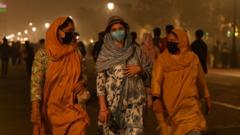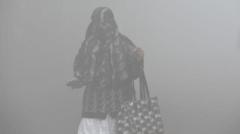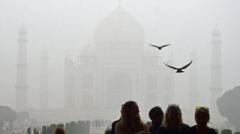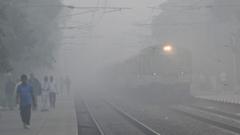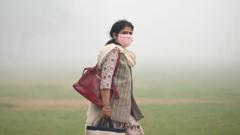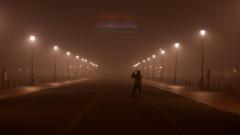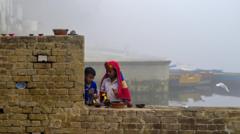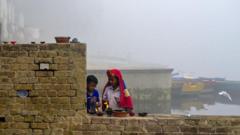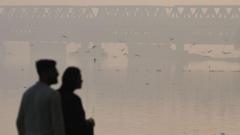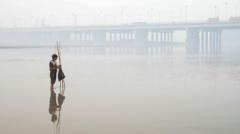In response to alarming levels of air pollution in Lahore, Pakistan, characterized as “the fifth season,” the government has implemented severe restrictions on nighttime activities, including market closures and outdoor dining bans, dramatically impacting the city's culture and commerce.
Lahore's Nights Dimmed by Unprecedented Smog Crisis

Lahore's Nights Dimmed by Unprecedented Smog Crisis
Lahore faces harsh restrictions as cold-weather smog disrupts its vibrant evening activities, drawing comparisons to past pandemic lockdowns.
In a city renowned for its vibrant nightlife and bustling markets, Lahore, Pakistan, is grappling with an unprecedented environmental crisis. As dense smog envelops the 14 million-strong metropolis, authorities have enacted strict restrictions reminiscent of the Covid-19 lockdowns, thereby reshaping the cultural landscape of this historically rich city.
Lahore, famed for its lively food streets and elaborate wedding celebrations, has seen its night-time activities severely curtailed. With a culture that thrives after sunset, new governmental measures require markets and wedding halls to close by 8 p.m., significantly altering the daily routines of residents. Outdoor barbecues have been banned, and popular public spaces, including parks and museums, are closed until further notice.
Chaudhry Kabir Ahmed, a local trader's leader, expressed the challenges of abruptly changing societal habits. “People here start shopping after 4 or 5 p.m. after men return from their jobs,” he shared, lamenting how persistent fines and police raids threaten to disrupt their livelihoods. For many vendors, the new rules directly contradict the established culture of commerce that defines Lahore.
The air quality in Lahore has reached alarming levels, hitting a staggering 1,100 on the Air Quality Index (AQI) in recent weeks, where values above 150 indicate unhealthy conditions. In the Punjab Province, which is most impacted, air quality management is a significant concern, as the city consistently ranks among the world’s most polluted areas.
Experts and local residents alike are calling for long-term solutions beyond temporary restrictions. While government measures aim to curb pollution, the broader challenge lies in addressing the causes of Lahore's long-standing air quality deficiencies, including industrial emissions and vehicular pollution.
The irony of the ongoing situation is stark: the city's vibrant culture is now pitted against existential threats posed by a deteriorating environment. As locals adapt to these new constraints, Lahore remains a testament to the resilience of a community striving to balance tradition and survival in the face of adversity.
Lahore, famed for its lively food streets and elaborate wedding celebrations, has seen its night-time activities severely curtailed. With a culture that thrives after sunset, new governmental measures require markets and wedding halls to close by 8 p.m., significantly altering the daily routines of residents. Outdoor barbecues have been banned, and popular public spaces, including parks and museums, are closed until further notice.
Chaudhry Kabir Ahmed, a local trader's leader, expressed the challenges of abruptly changing societal habits. “People here start shopping after 4 or 5 p.m. after men return from their jobs,” he shared, lamenting how persistent fines and police raids threaten to disrupt their livelihoods. For many vendors, the new rules directly contradict the established culture of commerce that defines Lahore.
The air quality in Lahore has reached alarming levels, hitting a staggering 1,100 on the Air Quality Index (AQI) in recent weeks, where values above 150 indicate unhealthy conditions. In the Punjab Province, which is most impacted, air quality management is a significant concern, as the city consistently ranks among the world’s most polluted areas.
Experts and local residents alike are calling for long-term solutions beyond temporary restrictions. While government measures aim to curb pollution, the broader challenge lies in addressing the causes of Lahore's long-standing air quality deficiencies, including industrial emissions and vehicular pollution.
The irony of the ongoing situation is stark: the city's vibrant culture is now pitted against existential threats posed by a deteriorating environment. As locals adapt to these new constraints, Lahore remains a testament to the resilience of a community striving to balance tradition and survival in the face of adversity.




